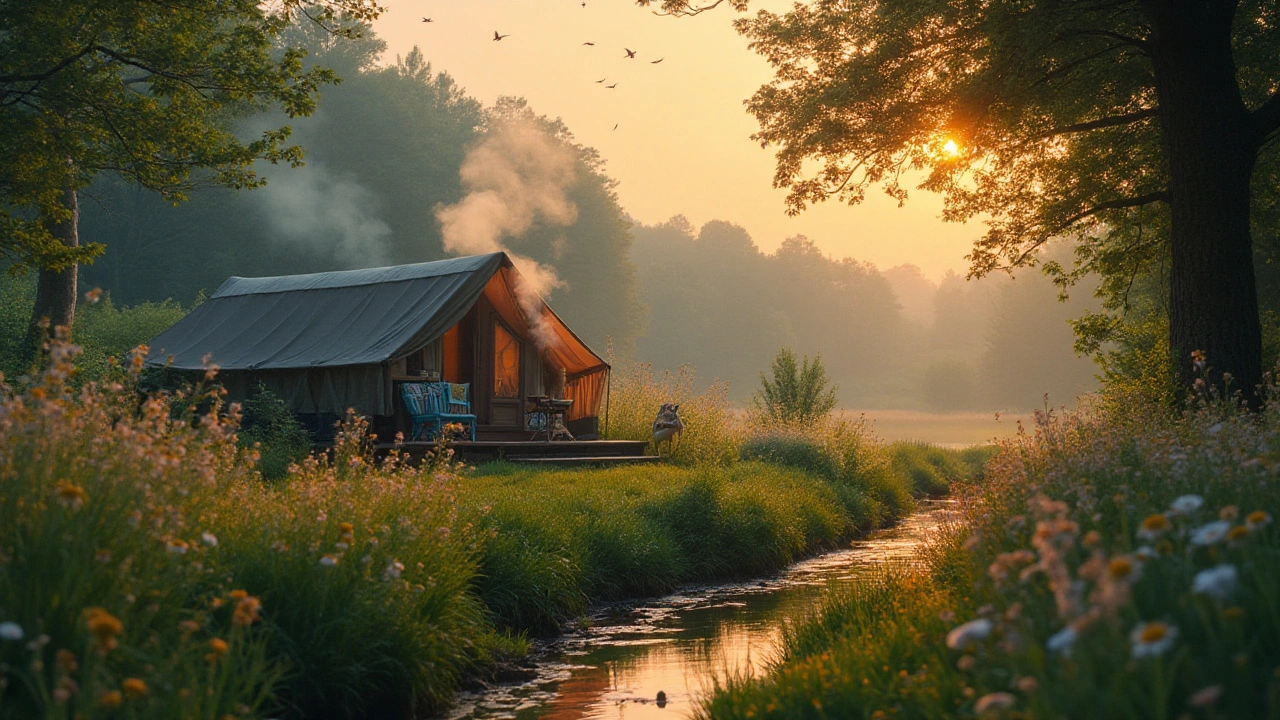Campsite Living UK: Essential Tips for Motorhome Adventures
If you’ve ever dreamed of waking up to rolling hills, fresh air and a cup of tea beside your motorhome, you’re in the right place. Camping in the UK isn’t just about pitching a tent – it’s a full‑time lifestyle that mixes freedom with a few rules you need to know. Below you’ll find the basics that keep every trip smooth, affordable and legal.
Powering Your Home on Wheels
One of the biggest worries for motorhome owners is electricity. A portable power station can be a lifesaver, but you don’t have to splurge on the biggest model. Start by figuring out your daily watt‑hour needs – lights, fridge, phone chargers and a small heater usually stay under 2,000 Wh. A 500 Wh lithium pack will cover a night, while a 1,500 Wh unit handles a weekend. Pair the battery with a solar panel (100 W is a good starter) and you’ll rarely need a campsite hook‑up.
When you do hook up, remember the UK uses a 13‑amp plug (type G). Bring a ready‑made adapter that converts the campsite’s 230 V socket to your internal 12 V system. It saves time and avoids the frantic search for the right cable at busy sites.
Legal Basics and Wild Camping Rules
Most people think you can park anywhere and sleep, but the UK has clear rules. On public roads, you can park for up to two hours without a permit, but you can’t stay overnight. For longer stays, look for designated motorhome bays or caravan pitches – they often include waste disposal and electricity.
Wild camping is allowed in many Scottish lands, but in England and Wales you need landowner permission. A good rule of thumb: if you’re on private property, ask before you set up. The “Leave No Trace” principle isn’t just a slogan – pack out everything, keep fires small (or use a portable stove), and respect wildlife.
Another common question is whether you can move about inside a motorhome while it’s rolling. The answer is no – UK law requires occupants to be seated and belted whenever the vehicle is in motion. If you need the bathroom, pull over safely and use it then.
Saving Money on Campsites
Campsite fees vary from £5 a night at a basic rural site to £30 at a luxury glamping spot. To keep costs down, book off‑peak or use “last‑minute” apps that release spots a few hours before midnight. Many sites offer discounts for longer stays; a week‑long booking can shave 10‑15% off the total.
Don’t forget to check for free “boondocking” spots – many service stations and some beaches allow overnight parking, though you’ll need to be self‑contained (no waste dump). Always note local bylaws; a few counties have cracked down on beach camping and may issue fines.
Practical Hacks for a Comfortable Stay
Pack a few essential items that make life on the road easier: a sturdy padlock for your storage compartment, a collapsible water container, and a compact fire extinguisher. A simple checklist before you leave – tyre pressure, fluid levels, and route planning – avoids panic on the road.
Finally, keep a small notebook or digital note of the campsites you’ve liked. Jot down the hook‑up type, noise level, and any quirks. Over time you’ll build a personal map of the best spots, saving you time and stress on future trips.
With the right power setup, a clear grasp of the rules, and a few money‑saving tricks, campsite living in the UK can feel like a permanent vacation. Pack your bags, start the engine, and enjoy the freedom of the open road.
